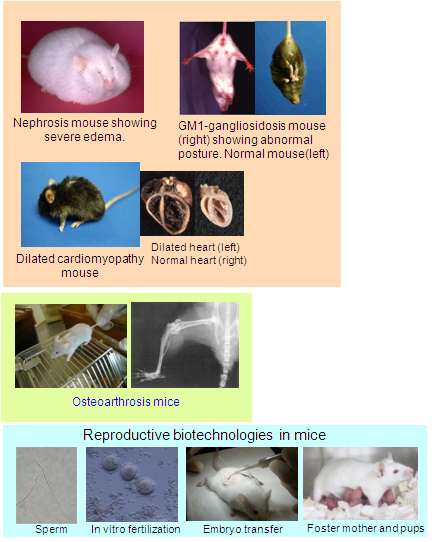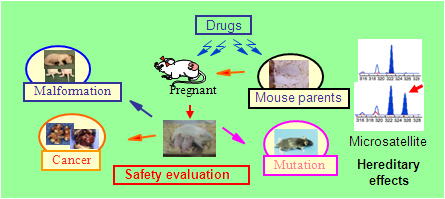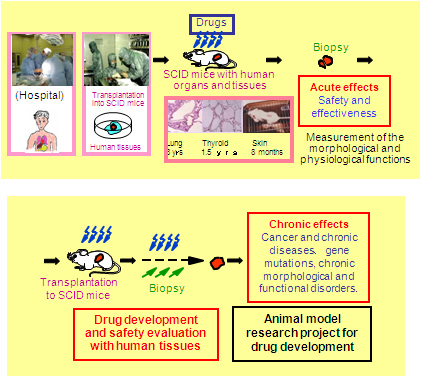HOME › Research and Resources › Research on Disease Bioresources › Laboratory of Experimental Animal Models and Experimental Animals Resource Bank

Laboratory of Experimental Animal Models and Experimental Animals Resource Bank
1. members
- Project leader - Junichiro Matsuda
- Senior researcher - Osamu Suzuki
- Senior researcher - Yoko Noguchi
- Senior researcher - Minako Koura
- Researcher - Kozue Uchio-Yamada
- Research assistant - Kazuomi Nakamura
- Secretary - Hiroko Urahama
- Project leader - Taisei Nomura
- Vice project leader - Haruko Ryo
- Researcher - Nanao Horike
- Researcher - Shigeki Adachi
- Researcher - Yoriko Tokita
- Research assistant - Eiko Hatanaka
- Research assistant - Kojun Yasuda
- Research assistant - Kumiko Enomoto
- Secretary - Masumi Maeda
- Visiting scientists - Inohara, Enomoto, Taniguchi, Tsujimura, Nonomura, Hiramatsu, Matsuzuka, Yoshidome, Wakame, and 10 scientists
2. Background and objectives
A variety of animal models for human diseases play essential roles in the biomedical research including pathogenetic analysis and the development of new drugs for rare and/or incurable diseases. To facilitate the research and development, we are developing new animal models of diseases by establishing spontaneous mutant mice, transplanting human organs or tissues to super SCID mice, and generating gene-modified animals. We are also maintaining, preserving, and providing these model animals and developing related technologies such as reproductive biotechnologies.
3. Overview of our research
I. Development of animal models for human diseases and related technologies
We are developing and establishing new animal models for human diseases focusing on rare and/or incurable diseases including inherited metabolic disorders (e.g., lysosomal storage diseases), intractable nephrosis, cardiomyopathy, and osteoarthrosis. In addition, we are developing and improving the reproductive techniques such as in vitro fertilization and embryo/gamete/ovary cryopreservation in order to maintain/preserve and provide safely/effectively the valuable model animals.

II Development and application of highly sensitive mouse strains for safety evaluation
These mouse strains allow research on (i) multiple diseases, including cancers, malformations, mutations, lethals and others in one individual mouse; (ii) DNA damage and repair; and (iii) efficient detection and analysis of mutations. Transgenerational effects (cancer, malformations, chronic diseases, genomic instability) will be also detectable in the progeny of mice receiving radiation and chemicals.

III Human disease tissues in SCID mice for drug development and safety evaluation
We develop mice that can be transplanted with human organs and tissues (super SCID mice: mice that do not mount an immunological response to transplanted tissues). These mice allows researchers to perform experiments in a system that mimics the conditions in humans and to use these mice as models for drug development and safety research, gene and immune therapies, and human cancer development and metastasis.

To the homepage of the Laboratory of Experimental Animal Models
To inquire about the Laboratory of Experimental Animal Models, please contact



